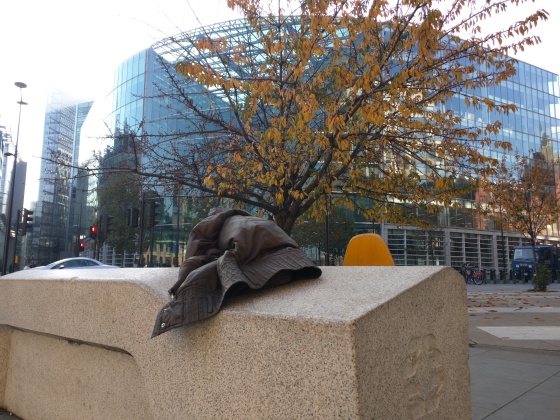
Infinite blue skies
merged with your blue walls
…travelling-dreaming
we talked about what we would become.
At 15 you were already 27
impatient for the responsibilities of being
a mother, a wife.
Our lives were already
bound for diverging paths.
I don’t remember studying together
time together was too precious…
Soft white cotton from yesterday’s halloween costume
caught up with baby green leaves
rolling down the pavement like tumbleweed
far from home.
I am transported…
back to your room again.
There were books (weren’t there?)
Neil Gaiman (mine) and Margaret Atwood (yours).
I remember talking and dreaming.
the end of an infinity of
five-hour afternoons
in a time without
distractions
There was no way of knowing
(what others thought)
and we learnt not to care.
They were tiny grey pebbles
on haphazardly-laid concrete tiles
(perhaps something worth remembering,
even more important now,
when we are not allowed to forget)
There were too many
orange/red leaves
to catch before they fell.
Each one a cradle
transporting wishes
like ours.
After the fall…
crumpled green cans
litter the asphalt
showing up dirty white cigarette butts
flayed and exposed
I fell.
tumbling sideways and laughing
but you were not there anymore.
*This is part of an experiment with poetry, film and movement. Click here for the link to the film.
